12 Foods That Can Cause Constipation And How To Prevent It
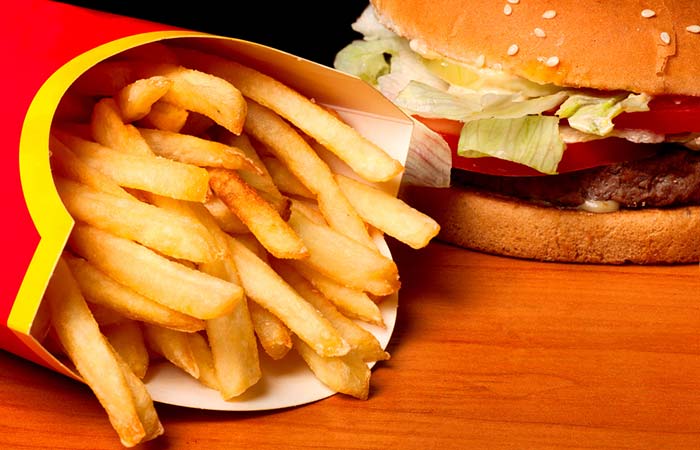
Fried and fast food are food trends that need to go away. These are the main reasons for many health issues like obesity and heart diseases. Since these foods are also high in sodium and artificial food additives, they tend to slow down the passing of food through the colon, leading to constipation. If you are someone who has at least one meal consisting of fast or fried foods, you will be at risk of not only constipation but also many other health issues (12) (13). Stop eating these – the sooner, the better. Avoid them completely if you suffer from constipation regularly.
12. Chips
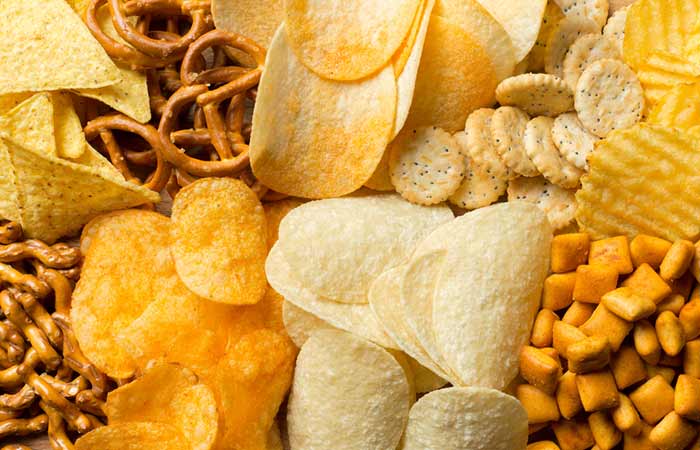
The last, but not the least. Without blinking your eyes, you can finish a big bag of chips. The perfect balance of salt and sugar in the chips makes it really tough to stop once you have started. But did you know that apart from making you gain weight, they can also cause constipation (13)? Yes, chips are fried and high in sodium. Avoid consuming too much of them or just banish them from your house.
 Did You Know?
Did You Know?
A sedentary lifestyle, low-fiber foods, dehydration, and regular intake of medications for low blood pressure, sedatives, and painkillers can trigger constipation.
A survey conducted on 4,702 participants who experienced constipation found that 3 of 5 Americans never discussed their symptoms with a healthcare provider. Out of all the respondents, only 37.6% of them consulted a clinician for their condition, with only 26.0% consulting a gastroenterologist.
These were the 12 constipation causing foods. Now, let’s take a look at foods that relieve constipation.
10 Best Foods For Relief From Constipation (CONSUME THESE)
1. Papaya
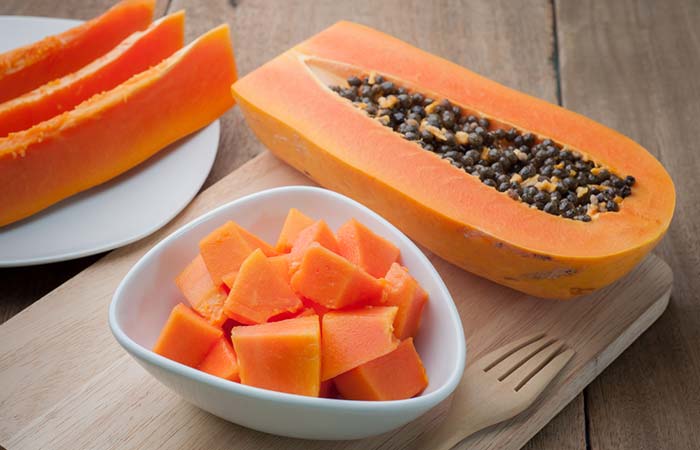
This golden orange tropical fruit is loaded with a digestive enzyme called papain and has a good amount of dietary fiber (14). Papain helps in digestion, and the dietary fiber aids good peristaltic movement of the digestive tract, thereby helping relieve constipation.
2. Prunes
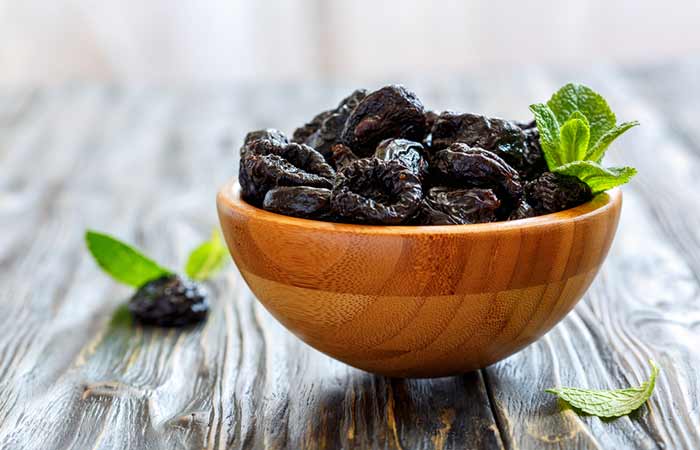
Prunes are loaded with soluble and insoluble fibers. Drinking prune juice in the morning and during your evening snack time can help stimulate bowel movement (15). Drink this regularly to prevent constipation and keep your colon clean.
3. Kiwi
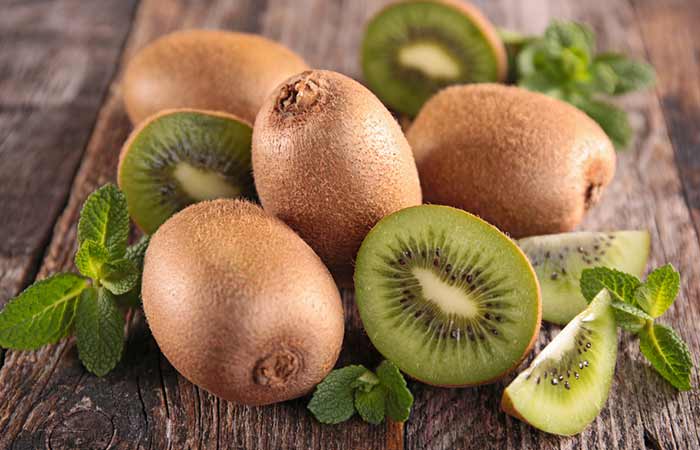
This luscious green, sweet and sour fruit tastes amazing and helps support digestion, absorption, and excretion. Kiwis are high in dietary fiber and have a stimulatory effect on the colon. They are beneficial for people with constipation, gastrointestinal disorders, and irritable bowel syndrome (16). Therefore, consume at least one whole kiwi before lunch or as an evening snack to provide your body the nourishment it deserves.
4. Berries
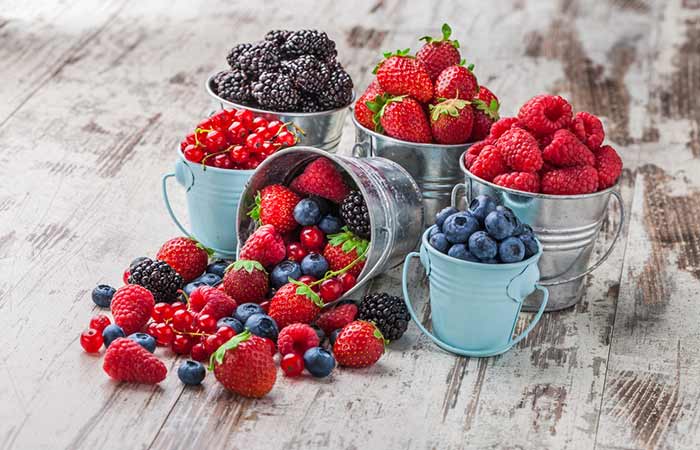
Berries like strawberries, blueberries, and blackberries are good sources of dietary fiber (soluble and insoluble) that stimulates peristaltic movement. They also provide a healthy dose of vitamins and minerals. Have a cup of mixed berries every day to help prevent constipation (17).
5. Popcorn
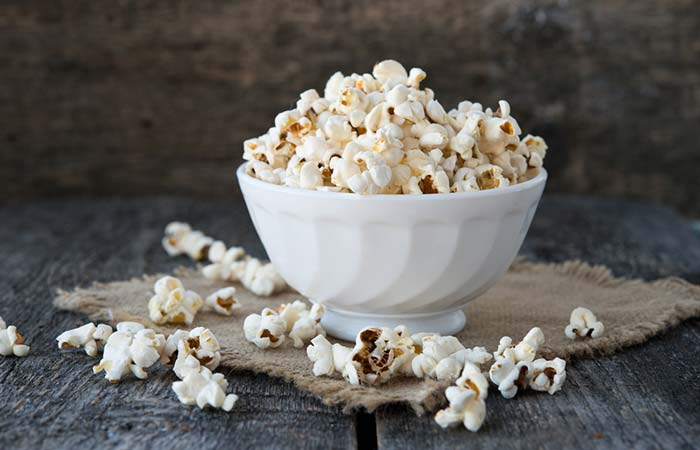
Finally something on the list that’s crunchy, fun, and can be made and eaten any time of the day! Popcorn is a high-fiber, low-calorie snack that helps add bulk to the stool, improves bowel movement and constipation, soften feces, and stimulates colonic emptying (18). It is one of the healthiest snack options that help provide a balanced diet . Have one medium bowl of unsalted popcorn every day.
6. Whole Grain Bread
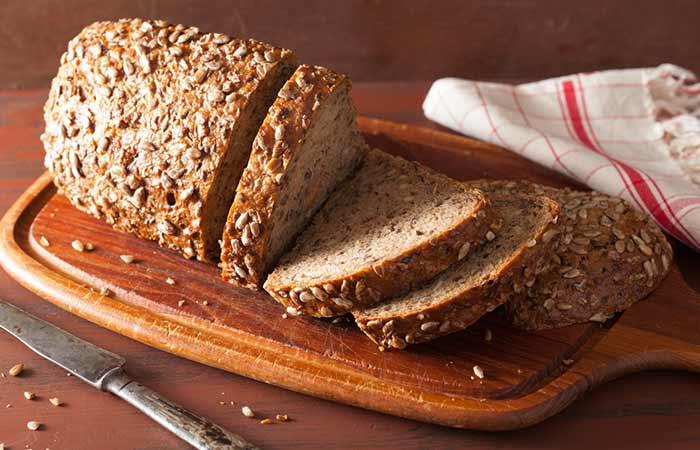
Whole grain bread is loaded with soluble and insoluble fibers (19). Since dietary fiber helps draw water and adds bulk to the waste in the colon, passing stool becomes easier. So, avoid refined grains and white bread and switch to whole grain bread and have 2-3 slices of it every day.
7. Pears, Plums, And Apples
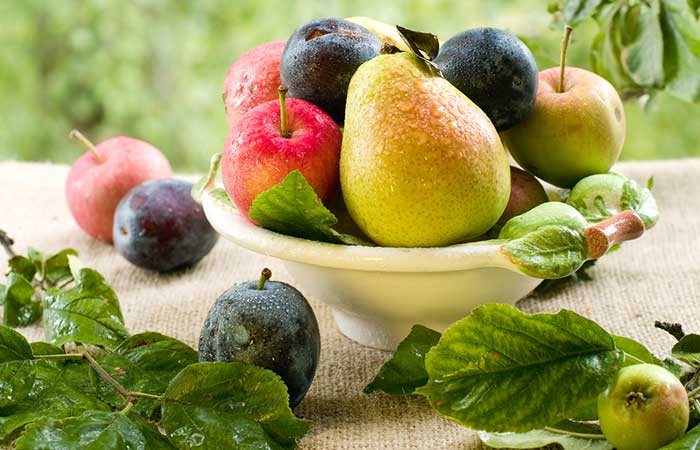
Apples, plums, and pears are not only good sources of vitamins and minerals but are also loaded with dietary fiber (20). You can consume half of each of these fruits or may have each of them on different days of the week.
8. Flaxseeds
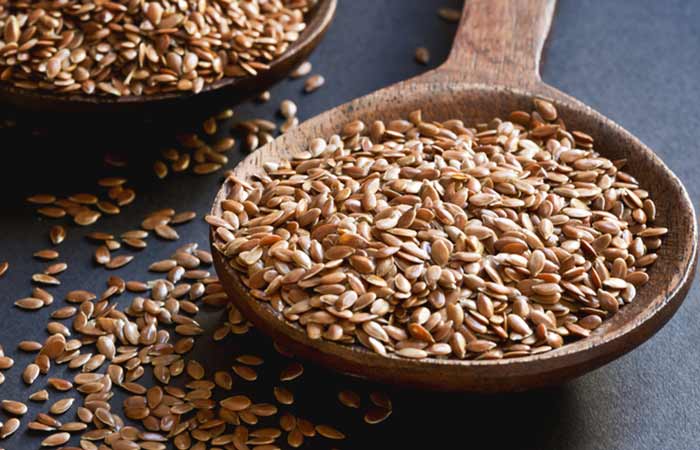
Flaxseeds are a great source of healthy fats, which is why they are known to aid weight loss. One of the reasons they cause fat loss is that they are high-fiber seeds that stimulate bowel movement, thereby preventing constipation and improving digestion (21).
9. Broccoli
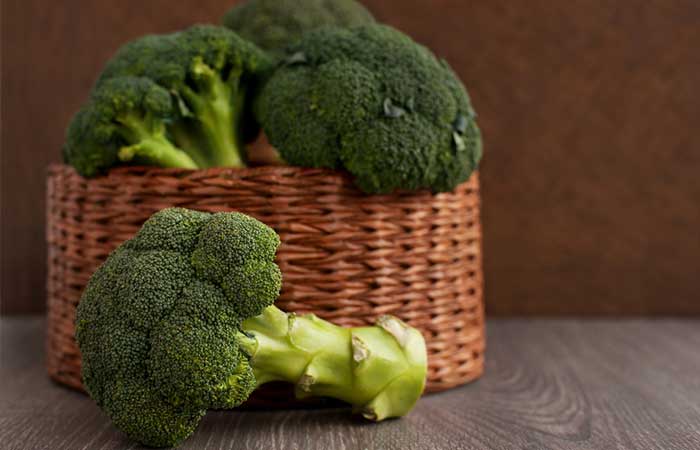
Image: Shutterstock
Broccoli can be super delicious if you cook it right. It can vanish your constipation, weight gain, and other health-related issues (22). A cup of blanched broccoli with other colon stimulating veggies and foods is all you need.
10. Dried Fruits
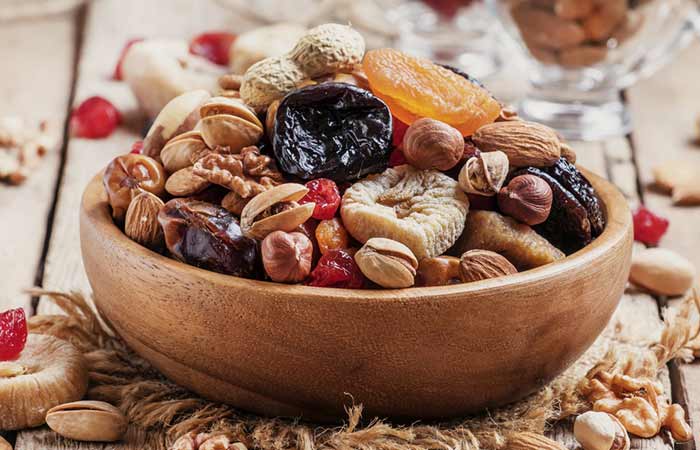
Image: Shutterstock
Nuts, apricots, dates, etc. are all good for relieving constipation (2). They are a rich source of fruit sugar, dietary fiber, vitamins, and minerals. Consume at least a fistful of dried fruits every day to flush out toxins from your colon.
SOURCES
- Constipation: Evaluation and Management
https://www.ncbi.nlm.nih.gov/pmc/articles/PMC6140151/ - Diets for Constipation
https://www.ncbi.nlm.nih.gov/labs/pmc/articles/PMC4291444/ - The perceived effect of various foods and beverages on stool consistency
https://pubmed.ncbi.nlm.nih.gov/15647650/ - Effect of coffee on distal colon function.
https://www.ncbi.nlm.nih.gov/labs/pmc/articles/PMC1378422/ - Association Between Ultra-Processed Food Consumption and Functional Gastrointestinal Disorders: Results From the French NutriNet-Santé Cohort
https://pubmed.ncbi.nlm.nih.gov/29904158/ - Celiac disease
https://www.ncbi.nlm.nih.gov/books/NBK441900/ - Persimmon fruit causing simultaneous small bowel and stomach obstruction
https://www.ncbi.nlm.nih.gov/labs/pmc/articles/PMC6875815/ - Red Meat and Processed Meat
https://www.ncbi.nlm.nih.gov/books/NBK507976/ - Constipation is relieved more by rye bread than wheat bread or laxatives without increased adverse gastrointestinal effects
https://pubmed.ncbi.nlm.nih.gov/20089780/ - Constipation
https://www.ncbi.nlm.nih.gov/books/NBK513291/ - The Role of Cow’s Milk Allergy in Pediatric Chronic Constipation: A Randomized Clinical Trial
https://www.ncbi.nlm.nih.gov/labs/pmc/articles/PMC3533146/ - Food Additives Gut Microbiota and Irritable Bowel Syndrome: A Hidden Track
https://www.ncbi.nlm.nih.gov/labs/pmc/articles/PMC7730902/ - Specific foods can reduce symptoms of irritable bowel syndrome and functional constipation: a review
https://pubmed.ncbi.nlm.nih.gov/31080496/ - Nutraceutical Potential of Carica papaya in Metabolic Syndrome
https://www.ncbi.nlm.nih.gov/labs/pmc/articles/PMC6682863/ - Systematic review: the effect of prunes on gastrointestinal function
https://pubmed.ncbi.nlm.nih.gov/25109788/ - The nutritional and health attributes of kiwifruit: a review
https://www.ncbi.nlm.nih.gov/labs/pmc/articles/PMC6267416/ - The inhibitory effects of berry polyphenols on digestive enzymes
https://pubmed.ncbi.nlm.nih.gov/16498205/ - Effects of rice-based and wheat-based diets on bowel movements in young Korean women with functional constipation
https://www.ncbi.nlm.nih.gov/labs/pmc/articles/PMC7606135/ - Effects of cereal fiber on bowel function: A systematic review of intervention trials
https://www.ncbi.nlm.nih.gov/labs/pmc/articles/PMC4528039/ - Whole Fruits and Fruit Fiber Emerging Health Effects
https://www.ncbi.nlm.nih.gov/labs/pmc/articles/PMC6315720/ - Flaxseed—a potential functional food source
https://www.ncbi.nlm.nih.gov/labs/pmc/articles/PMC4375225/ - In vitro gastrointestinal digestion study of broccoli inflorescence phenolic compounds glucosinolates and vitamin C
https://pubmed.ncbi.nlm.nih.gov/14709026/ - Chronic functional constipation is strongly linked to vitamin D deficiency
https://www.ncbi.nlm.nih.gov/pmc/articles/PMC6465937/




